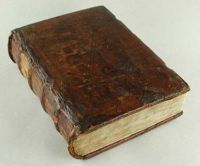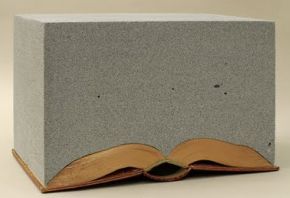Setting out to learn a piece of scripted classical music, a pianist usually looks at print. Some musicians listen to recordings.
 A celebrated American violin pedagogue sent her young virtuosos to listen to five or six recordings of a new piece. The kids calculated the speed of each performance with a metronome, averaging the numbers together to determine the right tempo for their own performance — a focus group for tempo!
A celebrated American violin pedagogue sent her young virtuosos to listen to five or six recordings of a new piece. The kids calculated the speed of each performance with a metronome, averaging the numbers together to determine the right tempo for their own performance — a focus group for tempo!
Other teachers counsel strict avoidance of recordings. Is it better to read for ourselves? Erich Leinsdorf faulted young conductors who learned new repertory from recordings. Obvious sonic details (the triangle!) were prominent in their sense of a piece, but not basic structures or concepts, Leinsdorf maintained.
Embarking on research in science or the humanities, an initial stage is the discovery and reading of all the previous work. Lawyers study case law, as well as statutes. As he prepared to record Beethoven’s “Hammerklavier,” I discussed this with Russell Sherman. Would it make sense to find and listen to all the previous recordings of the sonata? Or can a pianist, in our period of relatively easy access to the legacy of recorded performing, dare not to listen to previous recordings of “his” piece? Can these recordings simply help in making sure there are not errors of text-reading? Or will they impede music making?
Perhaps listeners know the legacy. Jerome Lowenthal told me he was accosted backstage after playing Tchaikovsky’s First Concerto. A woman asked: “Do you play the Rubinstein or the Horowitz version?” Arturo Toscanini is reported to have said he couldn’t compose because his head was too full of other people’s compositions.
Is there middle ground? Is there some way to be aware of the recorded past, to draw information about style from it — even inspiration and courage — and yet not become a jukebox or encyclopedia? 

In most musical cultures new pieces are learned by observing another musician perform the ‘work’, and by spending time with other musicians learning to play by rote.
By the same token, it would be quite weird to ask an actor if they are going to perform a role in the manner of some famous actor of a previous generation.
Methods of preparing for a performance should be wide and varied if we want the culture to be vital and exciting.
In most musical cultures new pieces are learned by observing another musician perform the ‘work’, and by spending time with other musicians learning to play by rote.
By the same token, it would be quite weird to ask an actor if they are going to perform a role in the manner of some famous actor of a previous generation.
Methods of preparing for a performance should be wide and varied if we want the culture to be vital and exciting.